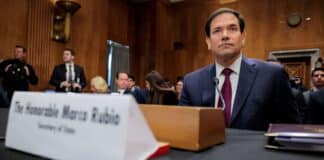Chicago’s annual Cinco de Mayo Parade has been canceled amid growing fears within the city’s Mexican community, organizers announced Thursday. The decision comes as concern rises over stepped-up immigration enforcement under President Donald Trump’s administration.
Hector Escobar, president of the Casa Puebla & Cermak Road Chamber of Commerce, cited widespread fear in the community as the key reason behind the cancellation. “Our people are scared,” Escobar said. “Some of them don’t even want to go to work… it’s not much to celebrate.”
Chicago, a sanctuary city, has seen increased activity from Immigration and Customs Enforcement (ICE) in recent months. Reports of raids and deportation efforts have sparked anxiety across the city and surrounding suburbs, particularly in Little Village—the neighborhood where the parade traditionally begins on Cermak Road.
Organizers said they feared that holding a public celebration could lead to arrests and deportations. “We don’t want to have any confrontation or having people taken away from the festival… to custody,” Escobar stated.
The heightened immigration enforcement has also affected local businesses and parade sponsorships. Nearly half of the sponsors withdrew support, further complicating the event’s viability. “We could have done it with the 50% of the sponsorship… but it’s not about money. It’s just more about the safety,” Escobar said.
The parade has faced issues in recent years. It was not held from 2018 to 2022 due to the pandemic and disputes with city officials. Last year, the route was changed after a gang-related incident resulted in several arrests.
At this time, organizers are uncertain whether the event will return next year. “We don’t know what is going to happen next year,” Escobar concluded.
The cancellation highlights the effectiveness of federal immigration enforcement in deterring illegal activity and raises questions about sanctuary city policies that shield those in the country unlawfully. As enforcement ramps up, public events once seen as untouchable may increasingly become flashpoints in the broader debate over immigration and the rule of law.





